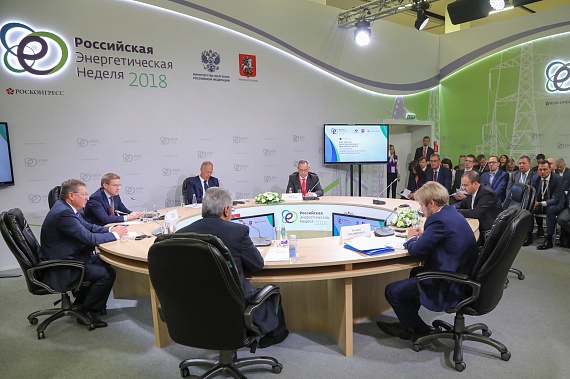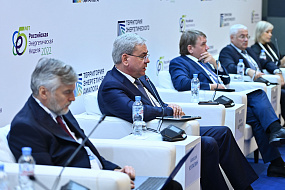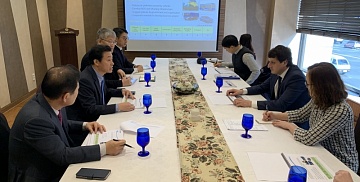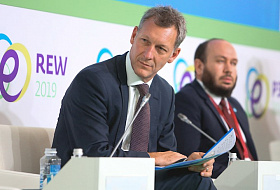Investing in Energy: New Opportunities

KEY CONCLUSIONS
Stable oil prices are essential for investment in the industry
“The OPEC and non-OPEC agreement played an important stabilizing role not only for the market, but also for investment. When oil prices were at USD 35 per barrel, there was no investment coming into the industry. This created enormous potential for a sharp rise in oil prices in the future, and many investment programmes were actually suspended, so now we are seeing a very high inflow of investment into the industry, and stable oil prices are undoubtedly essential for these investments”, Russian Direct Investment Fund (RDIF) CEO Kirill Dmitriev said.
“Market stability is extremely important for a steady stream of investment. Over the past few years when there was a decline in oil prices, we saw how we lost almost USD 1 trillion in energy investments, and, of course, this had a devastating effect on our ability to move forward [...] We now see that investments are gradually returning [...] These investments are often quite small and they primarily aim to develop fields, but we need a full-fledged stream of investments that can guarantee 20 million barrels of oil for the next five years”, Senior Vice President of Saudi Arabian Oil Company (Saudi Aramco) Mohammed Al Qahtani said.
The Russian energy sector is attractive to foreign investors
“Since the start of 2015, direct investments of roughly USD 45 billion have been made in the extraction of fuel and energy minerals in Russia, or about 60% of the total amount. Foreign investors maintain a high level of interest in the energy sector, as evidenced by the first investments from our Middle Eastern partners in this sector of the Russian economy. Co-investing with the RDIF’s international partners not only provides Russian companies with capital for development and technology for complex projects, but also provides access to the world’s largest energy markets in the Middle East”, Dmitriev said.
"In Russia, we have an agreement with the Russian Direct Investment Fund [...] and we plan to invest over USD 1 billion both in the service and in other energy-related sectors [...] I think that our existing relations with the Russian Federation will strengthen in doing so”, Qahtani said.
“Our global priority is revolutionary change and modernization in our networks, and we have been working on this for the past 15 years. We are now launching the third generation of our smart grid automation system [...] Russia is precisely the country where we can cooperate on this issue with local players [...] With the support of the RDIF, we have begun investing in renewable energy [...] Russian companies will be able to become truly competitive in this segment [...] We will develop our global programmes and support the Russian government in the programmes it has announced”, Stephane Maurice Zweguintzow, Chairman of the Board of Directors, Deputy General Director - Director for Personnel and Organizational Development, Enel Russia said.
International cooperation in the energy sector is mutually beneficial
“The Russian budget has received more than RUB 5 trillion in additional funds through the ‘OPEC – non-OPEC’ agreement, and it is important that investment in the industry actively continue. For example, jointly with Saudi Arabia – together with the Ministry of Energy and their investment fund – we have created an energy fund that will soon announce a number of transactions, including in technology companies in Russia as well as service companies in Russia. This means Russian companies get access to the contracts of a company like Aramco, which is the largest oil company in the world. Such all-around cooperation on the market turns into investment cooperation”, Dmitriev said.
PROBLEMS
Sanctions and political restrictions
“The portfolios of all major energy companies have historically had a rather large amount of capital in Russia [...] Now there is slightly less interest and less activity from foreign participants [...] First and foremost, everyone is thinking about sanctions and sanctions restrictions. Roughly 0.5% of Russian production is currently under sanctions [...] Political restrictions are more likely the most significant restriction that is really affecting the behaviour of participants”, Gazprom Neft Deputy Chairman of the Management Board and First Deputy CEO Vadim Yakovlev said.
Imbalance in investment
“We see that there is a trend of increased investment in brownfields, particularly in recent years. We are seeing insufficient investment in geological exploration and growing differentiation towards gas [...] Today, oil refining is mainly growing in localized areas and at very large facilities and this is associated with petrochemicals”, Zarubezhneft General Director Sergey Kudryashov said.
SOLUTIONS
Enhancing investment efficiency
“Gazprom Neft is a key, active, and capable participant on the global market. In the near future, we will reach production levels of 100 million tonnes. Going forward, we plan to grow at a pace no less than that of the industry, i.e. at a rate of 1.5–2% per year. We expect stable growth in our main product – oil – as well as growing demand for gas in the period until 2030. This dictates our investment preferences. We will continue to invest in production growth. The next investment horizon is connected with our presence in the north of Yamal, where a new cluster of production is being established. As for long-term projects, they are associated with shale formations and other categories of reserves that are quite new to us. In the coming years, we will focus our efforts on choosing technological solutions and high technologies that will make it possible to incorporate these reserves into development”, Yakovlev said.
Import substitution in technology
“For us, technology is an additional focus because synergy [...] allows us to make our own technologies and not to primarily depend on American technologies, for example, which is also an important aspect”, Dmitriev said.
Creating an attractive environment for foreign partners
“For the industry, working in partnerships is the customary and prevailing format for doing business [...] Traditionally, partners have had a lesser share of participation in Russia [...] For foreign partners, in addition to the proper commercial conditions and a proper climate, this is still an effective format for their participation in asset management. It’s a proper corporate configuration that enables a partner to participate in management at all stages of decision-making”, Yakovlev said.
Development of international partnerships at the level of companies and government agencies
“In principle, all the necessary legislation that exists in Russia is fully consistent with international practices [...] it’s a global world [...] We certainly support the idea that foreign companies coming to the Russian energy sector is important, positive, and a good thing [...] Our approach is very simple – we create country platforms with the United Arab Emirates, Saudi Arabia, and other countries. These country platforms allow us to explain that everything is fine in Russia and you can invest, and we show them how it all works using specific examples”, Dmitriev said.
“Our company is continuing its growth strategy. Maximum profit margin is a key requirement for inclusion in the portfolio of packages, whether it is oil or gas. The operational strength of the project is important here and that is why we have extensive experience working with various assets. As for cooperation with Gazprom Neft, we have a shared project in Western Siberia. In addition, we acquired a number of licenses in Indonesia. I have no doubt that we will be able to have success through investments and innovations. These are key drivers for us. Mubadala Petroleum is also mulling the possibility of creating joint ventures and developing new operating models that involve the emergence of new opportunities”, Mubadala Petroleum Production Manager Saad Al Hajeri said.





